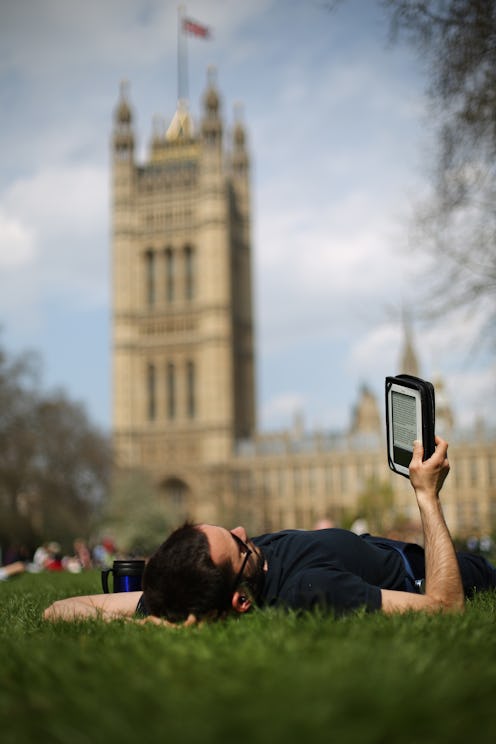Books
This Company Knows If You Finished That E-Book
E-books have made a lot of things possible — one-click book shopping, carrying hundreds of books with you at a time, and... calling out those who don't finish their books? Thanks to e-books platforms, we can now see just how often people don't really finish the books they start. Unsurprisingly, there are a lot of book-abandoners out there. Hey, we've all done it; it's just that now companies can creepily call us out on it.
According to data from the UK ebookseller Kobo, some of the most "unfinished" books are actually the most popular. Donna Tartt's The Goldfinch, for instance, might have been a Pulitzer Prize-winning bestseller, but fewer than half of the people who purchased it from Kobo actually finished the whole thing. I mean, I get that it's long, but still.
The Goldfinch wasn't alone; its fellow bestseller, 12 Years a Slave, the 1853 autobiography of Solomon Northrop, might have sold like hotcakes after the release of the award-winning film it inspired, but barely 28 percent of Kobo readers finished it.
Yikes!
In fact, though, it seems that it might actually be a rarity for more than half of purchasers to finish a title — according to Kobo's data, the most-finished book for the U.K. this past year is Rotten to The Core by Casey Kelleher, which was completed by 83 percent of those who bought it through Kobo. And while 83 percent is a good deal better than 28 percent, if that's the absolute best that a book can possibly do, those lower numbers don't seem quite so bad anymore.
Of course, even though the numbers do seem surprisingly low, it's not exactly news that people don't always finish the books they buy. I know I'm guilty of putting down my fair share of titles I'm not enthralled by. With so many other gorgeous volumes sitting in your To Be Read pile, sometimes it's just not worth it. The real news here, though, is the fact that thanks to e-books, companies can now spy on us and know exactly which books we finish.
What exactly are the implications here? Will "Most Finished" lists soon become normal counterparts to the bestseller lists? Kobo has already compiled one, and it looks completely different from their bestseller list, suggesting that the "Most Finished" lists could prove to be quite the disruptive force. After all, it's easy to mount a marketing campaign to get people to buy your book, but encouraging them to finish it is a whole other matter.
I wonder how companies might use this data on our personal reading habits to market more books to us. Will Amazon's recommendations soon factor in which books you finished, not just which books you bought? Will companies actually start subtly encouraging people to abandon books halfway through to increase their pace of buying? Will they begin trying to tempt us by promising less disappointing titles similar to ones we gave up on?
Who knows, but I'm sure if they can figure out ways to increase profit from this data, they will — which, for someone who's always thought of her reading habits as something deeply personal, sounds a little... creepy. After all, isn't it a company's job to sell you a book, not monitor what you do with it?
Personally, I'm sticking with hard copy. It's my business, period.
